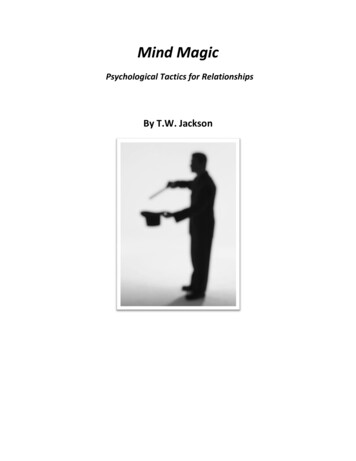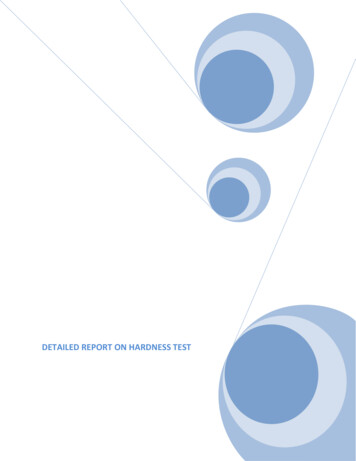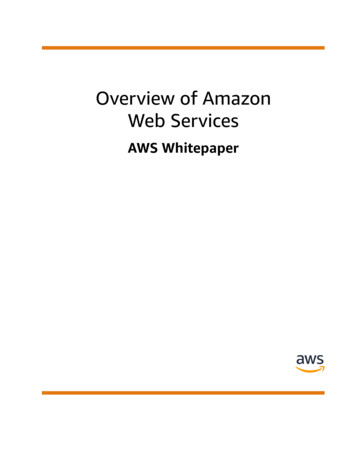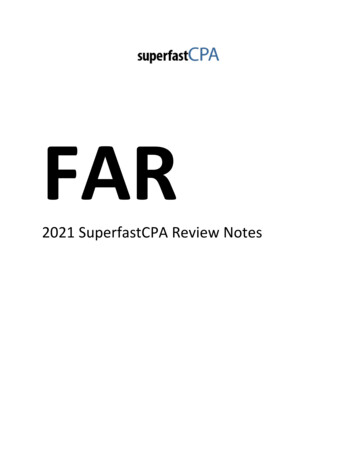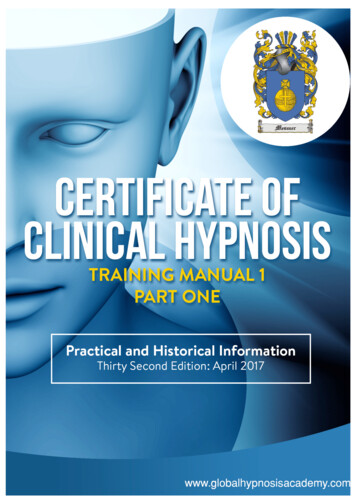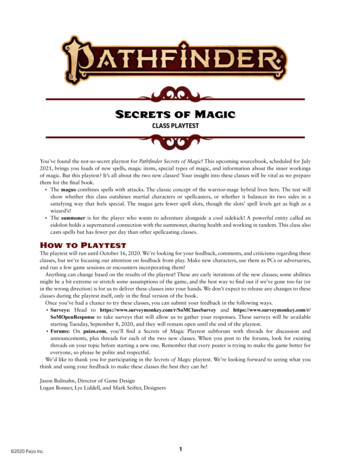
Transcription
Secrets of MagicCLASS PLAYTESTYou’ve found the not-so-secret playtest for Pathfinder Secrets of Magic! This upcoming sourcebook, scheduled for July2021, brings you loads of new spells, magic items, special types of magic, and information about the inner workingsof magic. But this playtest? It’s all about the two new classes! Your insight into these classes will be vital as we preparethem for the final book. The magus combines spells with attacks. The classic concept of the warrior-mage hybrid lives here. The test willshow whether this class outshines martial characters or spellcasters, or whether it balances its two sides in asatisfying way that feels special. The magus gets fewer spell slots, though the slots’ spell levels get as high as awizard’s! The summoner is for the player who wants to adventure alongside a cool sidekick! A powerful entity called aneidolon holds a supernatural connection with the summoner, sharing health and working in tandem. This class alsocasts spells but has fewer per day than other spellcasting classes.How to PlaytestThe playtest will run until October 16, 2020. We’re looking for your feedback, comments, and criticisms regarding theseclasses, but we’re focusing our attention on feedback from play. Make new characters, use them as PCs or adversaries,and run a few game sessions or encounters incorporating them!Anything can change based on the results of the playtest! These are early iterations of the new classes; some abilitiesmight be a bit extreme or stretch some assumptions of the game, and the best way to find out if we’ve gone too far (orin the wrong direction) is for us to deliver these classes into your hands. We don’t expect to release any changes to theseclasses during the playtest itself, only in the final version of the book.Once you’ve had a chance to try these classes, you can submit your feedback in the following ways. Surveys: Head to https://www.surveymonkey.com/r/SoMClassSurvey and https://www.surveymonkey.com/r/SoMOpenResponse to take surveys that will allow us to gather your responses. These surveys will be availablestarting Tuesday, September 8, 2020, and they will remain open until the end of the playtest. Forums: On paizo.com, you’ll find a Secrets of Magic Playtest subforum with threads for discussion andannouncements, plus threads for each of the two new classes. When you post to the forums, look for existingthreads on your topic before starting a new one. Remember that every poster is trying to make the game better foreveryone, so please be polite and respectful.We’d like to thank you for participating in the Secrets of Magic playtest. We’re looking forward to seeing what youthink and using your feedback to make these classes the best they can be!Jason Bulmahn, Director of Game DesignLogan Bonner, Lyz Liddell, and Mark Seifter, Designers 2020 Paizo Inc.1
Secrets of Magic 2020 Paizo Inc.2
Secrets of MagicMagusThe physicality and technique of combat are thrilling, and the intricacies and power of arcanemagic impressive, but the combination of the two is where things get really interesting.You’re a polymath, schooled in both spells and strikes. A hefty spellbook boasts your arcaneresearch, and your skill on the battlefield shows how you’ve trained your body. Combiningthese two arts, you can channel spells into your weapon or body to inflict on your foes withyour attacks.INITIAL PROFICIENCIESKey AbilityHit PointsSTRENGTH OR DEXTERITY8 plus your Constitution modifierAt 1st level, your class gives youan ability boost to your choice ofStrength or Dexterity.You increase your maximum number of HPby this number at 1st level and every levelthereafter.At 1st level, you gain the listedproficiency ranks in the followingstatistics. You’re untrained inanything not listed unless yougain a better proficiency rank insome other way.During Combat Encounters.PERCEPTIONYou place spells into your weapon or body to hit enemies with a powerful Strikeand spell combination. Because your spells per day are limited, you rely on trusty,carefully chosen cantrips. Even without spells, you can hold your own in battle.Trained in PerceptionDuring Social Encounters.Your education and breadth of experience make you knowledgeable about manysubjects. You can contribute information, especially about magic, but you might nothave the strongest skills of persuasion.While Exploring.Your flexibility means you might look for magical auras, remain on guard, or evensneak around. Your ability to fill different niches means that your particular roleoften depends on the talents of the other members of your group.In Downtime.You split your time between magical pursuits, like researching spells and craftingitems, and martial practice, such as retraining combat abilities to learn newtechniques.You Might. Continually refine your spell and item selections to improve your personal style,or prepare battle plans and spell lists for a variety of situations. Socialize with both scholars of magic and veteran combatants alike, and otherwiselearn from people of different backgrounds. Overreach with ambitious plans that pull you into too many directions at once.Others Probably. Wonder how you can keep on top of two disparate disciplines at the same time. Believe you have a broad enough skill set to take care of yourself in most situations. Expect you to fill the place of other spellcasters or martial warriors if they’reabsent or injured. 2020 Paizo Inc.3SAVING THROWSExpert in FortitudeTrained in ReflexExpert in WillSKILLSTrained in ArcanaTrained in a number of additionalskills equal to 2 plus yourIntelligence modifierATTACKSTrained in simple weaponsTrained in martial weaponsTrained in unarmed attacksDEFENSESTrained in light armorTrained in medium armorTrained in unarmored defenseSPELLSTrained in arcane spell attacksTrained in arcane spell DCs
Secrets of MagicClass FeaturesTABLE 1–1: MAGUS 0You gain these abilities as a magus. Abilities gained athigher levels list the level at which you gain them next tothe features’ names.Class FeaturesAncestry and background, initial proficiencies,arcane spellcasting, battle spells, Striking Spell,magus synthesisMagus feat, skill feat2nd-level spells, general feat, skill increaseMagus feat, skill feat3rd-level spells, ability boosts, ancestry feat,lightning reflexes, skill increase, weapon expertiseMagus feat, skill feat4th-level spells, general feat, skill increase,weapon specializationMagus feat, skill feat5th-level spells, alertness, ancestry feat, resolve,skill increaseAbility boosts, magus feat, skill feat6th-level spells, expert spellcaster, general feat,medium armor expertise, skill increaseMagus feat, skill feat7th-level spells, ancestry feat, skill increase,weapon masteryMagus feat, skill feat8th-level spells, ability boosts, general feat, greaterweapon specialization, juggernaut, skill increaseMagus feat, skill feat9th-level spells, ancestry feat, medium armormastery, skill increaseMagus feat, skill featDouble spellstrike, general feat, master spellcaster,skill increaseAbility boosts, magus feat, skill featAncestry and BackgroundIn addition to what you get from your class at 1st level, youhave the benefits of your selected ancestry and background.Initial ProficienciesAt 1st level, you gain a number of proficiencies thatrepresent your basic training. These proficiencies arenoted at the start of this class.Arcane SpellcastingYou study spells so you can combine them with yourattacks or solve problems that martial might alone can’thandle. You can cast arcane spells using the Cast a Spellactivity, and you can supply material, somatic, and verbalcomponents when casting spells.At 1st level, you can prepare one 1st-level spell and fivecantrips each morning from the spells in your spellbook(page 5). Prepared spells remain available to you untilyou cast them or until you prepare your spells again. Thenumber of spells you can prepare is called your spell slots.As you increase in level as a magus, your number of spellslots and the highest level of spells you can cast from spellslots increase, shown in Table 1–2: Magus Spells per Day.Some of your spells require you to attempt a spell attackroll to see how effective they are, or have your enemiesroll against your spell DC (typically by attempting asaving throw). Your spell attack rolls and spell DCs useyour Intelligence modifier. Details on calculating thesestatistics appear on page 447 of the Core Rulebook.TABLE 1–2: MAGUS SPELLS PER DAYYour Level1234567891011121314151617181920 2020 Paizo ��——————2222
Secrets of MagicHeightening SpellsSTRIKING SPELL SPECIFICSWhen you get spell slots of 2nd level and higher, you canfill those slots with stronger versions of lower-level spells.This increases the spell’s level, heightening it to match thespell slot. Many spells have specific improvements whenthey’re heightened to certain levels.The rules you normally need for Striking Spell are in its statblock. This sidebar clarifies some special circumstances.The spell’s effect is the same as it would’ve been when youcast it, except that it targets only the target you hit with yourStrike, even if it could potentially target or affect more thanone creature or object.Ancillary Effects: It still has any non-targeted effects thatmight affect creatures other than the target, and any ongoingeffects starting from the moment you hit with the Strike. Forexample, acid splash would still deal its splash damage tocreatures other than the target, tanglefoot’s penalty wouldlast for its normal duration, and vampiric touch still gives youtemporary Hit Points. The spell takes effect after the Strikedeals damage; if the Strike has other special effects, the GMdetermines whether they happen before or after the spell.Multiple Targets: Some feats let you discharge your spellagainst more than one target. In these cases, each of thosecreatures gets its normal defense against the spell (such asa saving throw) and any non-targeted effects that wouldaffect other creatures apply only once, using the worsteffect if the effects would be different. For example, hittingmultiple creatures with acid splash in this way couldn’t causea creature to take the splash damage more than once.Invalid Target: If the target you hit wouldn’t be a validtarget for the spell, the spell is still expended but doesn’taffect the target.Variable Actions: Some spells have different effects based onthe number of actions you spend to cast them; in such cases,the number of actions you actually spent to Cast the Spelldetermines the effect for Striking Spell.CantripsA cantrip is a special type of spell that doesn’t use spellslots. You can cast a cantrip at will, any number of timesper day. A cantrip is always automatically heightened tohalf your level rounded up—this is usually equal to thehighest level of spell you can cast as a magus. For example,as a 1st-level magus, your cantrips are 1st-level spells, andas a 5th-level magus, your cantrips are 3rd-level spells.SpellbookEvery arcane spell has a written version, usually recordedin a spellbook. You start with a spellbook worth 10 spor less (as detailed on page 291 of the Core Rulebook),which you receive for free and must study to prepare yourspells each day. The spellbook contains your choice ofeight arcane cantrips and four 1st-level arcane spells. Youchoose these from the common spells on the arcane spelllist or from other arcane spells you gain access to. Yourspellbook’s form and name are up to you. It might beanything from a sturdy book with a secure latch entitledTheses on the Stratagems of Supernatural Warfare to atattered pamphlet with your name scrawled on the cover.Each time you gain a level, you add two more arcanespells to your spellbook, of any level of spell you can cast.You can also use the Arcana skill to add other spells thatyou find in your adventures, as described on page 241 ofthe Core Rulebook.If you have a spellbook from multiple sources (such asbeing a magus with Wizard Dedication), you can use thesame spellbook for all your spells.Battle SpellsYou learn the magus potency battle spell (page 11).Battle spells are magus-specific spells created for combat.They’re a type of focus spell. It costs 1 Focus Point tocast a focus spell, and you start with a focus pool of 1Focus Point. You refill your focus pool during yourdaily preparations, and you can regain 1 Focus Point byspending 10 minutes using the Refocus activity to studyyour spellbook.Focus spells are automatically heightened to half yourlevel rounded up. Focus spells don’t require spell slots, norcan you cast them using spell slots. Taking feats can giveyou more focus spells and increase the size of your focuspool, though your focus pool can never hold more than 3points. The full rules are on page 300 of the Core Rulebook.Striking SpellYou’ve learned the fundamental magus technique that 2020 Paizo Inc.lets you combine magic and martial attacks together. Yougain the Striking Spell metamagic action. From start tofinish, using the effects of Striking Spell is a three-stepprocess. First, you use the Striking Spell free action.Second, you Cast a Spell into your body or weapon,using Striking Spell’s metamagical properties. And third,you Strike with that weapon or your unarmed attack anddischarge the spell at your target.STRIKING SPELL [free-action]CONCENTRATEMAGUSMETAMAGICFrequency once per roundYou drastically alter a spell to combine it with a martial attack.If the next action you use is to Cast a Spell that can target onecreature or object, instead of casting it as normal, you placeits magic into one melee weapon you’re wielding or into yourbody to use with an unarmed attack.If you hit with a melee Strike
You’ve found the not-so-secret playtest for Pathfinder Secrets of Magic! This upcoming sourcebook, scheduled for July 2021, brings you loads of new spells, magic items, special types of magic, and information about the inner workings of magic. But this playtest? It’s all about the two new classes! Your insight into these classes will be vital as we prepare them for the final book. The .
